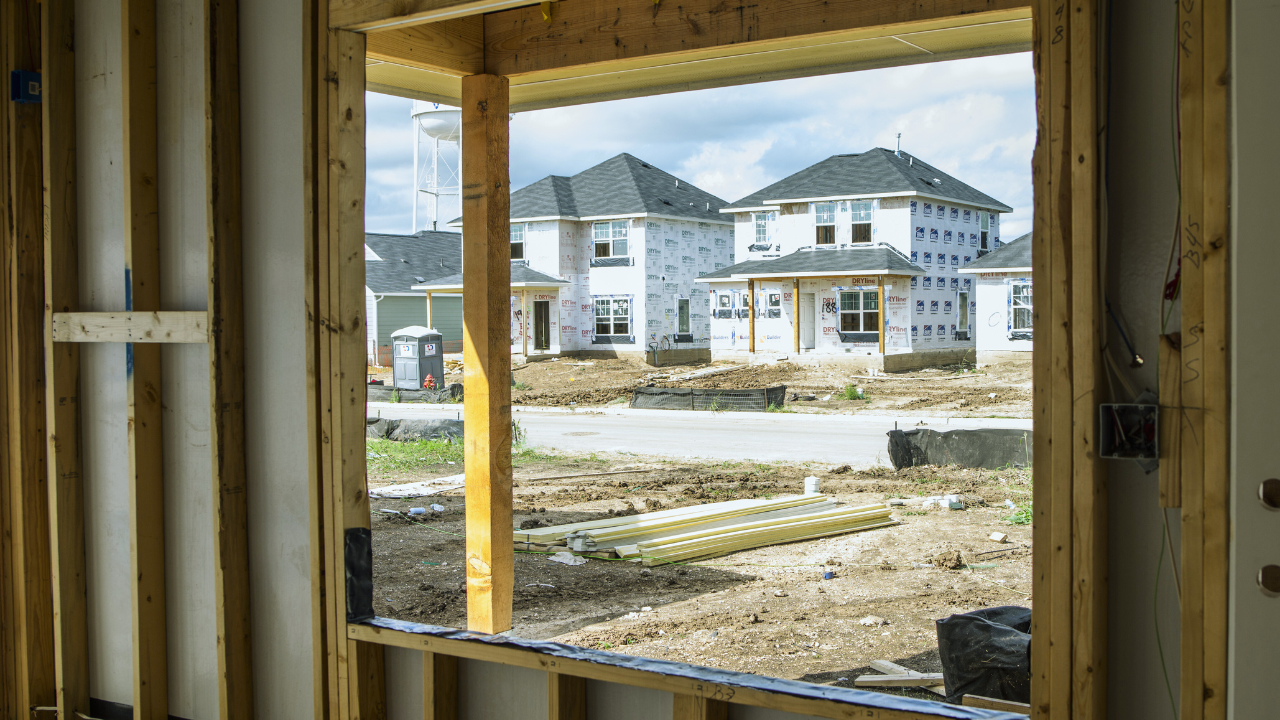National Stories
Mortgage rates stayed steady through most of 2025, but two consecutive Federal Reserve rate cuts in September and October signaled a slowing economy and cooling housing market. While federal fund rates don't directly cause lenders to lower their rates, mortgage rates are closely tied to Fed decisions.Borrowers would benefit from continued cuts, but it can be difficult to predict mortgage rate changes with certainty. If you closely monitor federal fund rates and official mortgage rate forecasts, you could time your home purchase or refinance for optimal conditions.We talked to industry experts about the mortgage interest rate scenarios that could happen in 2026 and what they recommend for borrowers for these scenarios.Find out more about your affordable mortgage loan options here.3 mortgage interest rate scenarios to know for 2026, according to expertsHere are a few of the possible scenarios that could occur with mortgage rates in the new year, experts say:Mortgage interest rates could fallHow it could happen: This could occur if inflation rates decrease and economic growth in consumer spending and job creation slows.Inflation was down to 3% in September 2025, a stark contrast from its 9.1% peak in June 2022, but still higher than the Fed's 2% target. If inflation decreases and more Fed rate cuts occur, then mortgage interest rates in 2026 could follow.And if the unemployment rate continues its steady climb — with those numbers increasing to 4.3% in September 2025, up from 3.8% in September 2023 — then the subsequent slowdown in consumer spending could push mortgage rates down with it, experts say. In a October 2025 press conference announcement, Federal Reserve Chair Jerome Powell says that while inflation has eased from its highs in 2022, it's still above the 2% target. "A further reduction in the policy rate at the December meeting is not a foregone conclusion—far from it," Powell notes. "Policy is not on a preset course.""Everyone is optimistic that market conditions will continue to facilitate a rate-cutting cycle for the Fed," says Sarah DeFlorio, William Raveis Mortgage vice president of mortgage banking. "While this doesn't translate directly to mortgage rates declining, it speaks to a hopeful environment where we can see that continue."That means homeowners and homebuyers waiting for the right time to refinance or buy may find more favorable mortgage interest rates in 2026, so borrowers should closely watch the market in the coming year.Compare your mortgage loan options and find the right fit today.Mortgage interest rates could stagnateHow this could happen: This scenario could occur if inflation stays slightly above the 2% target, but the Fed's benchmark interest rates help the committee balance between risks. Even if only one or two rate cuts occur in 2026, mortgage interest rates would likely stay roughly steady as the Federal Reserve aims for economic stability. Powell notes this in his October speech, stating that "our framework calls for us to take a balanced approach in promoting both sides of our dual mandate."But it's important to note that if interest rates do stagnate, it's not a sign of recession or the U.S. economy weakening, despite other bleak indicators, experts say. "Even in this period of uncertainty surrounding the government shutdown, rates have remained mostly steady and that is a good thing," DeFlorio says.Now that the government shutdown has ended and departments work to release new data, more clarity will come forward, Erik Schmitt, consumer direct channel executive at Chase Home Lending, says. "At this time, mortgage rates have generally stabilized, with only minimal movements rather than significant changes," Schmitt says. "Recent market behavior shows rates holding steady or edging up slightly, and although the Federal Reserve has cut rates twice this year, there is uncertainty about any future actions."Mortgage interest rates could riseHow this could happen: This scenario could occur if inflation rates climb sharply, as they did in 2022, and the labor market unexpectedly strengthens.Current mortgage rate predictions hold that Federal Reserve rates are unlikely to increase in the near future, although it's not impossible. But it would be a surprise to the market for the Fed to undo the mortgage rate progress that was spurred by the late-2025 benchmark rate cuts.Andrew Latham, SuperMoney director of content, notes how the economy could surprise us and push the Fed to increase rates to affect homebuyers and mortgage refinance options."If the economy continues to outperform expectations with strong consumer demand and job growth, markets may price in more risk," Latham says.Future borrowers who are concerned about the possibility of rising mortgage rates can prepare to refinance or buy earlier than expected and use rate locks to protect against Fed rate increases.Benefits of locking in your mortgage rate in 2026Further Fed rate cuts could occur in December 2025, but overall, it appears likely that mortgage rates will continue to hover around 6% as the Fed holds its benchmark interest rates at 3.75% to 4%. "Rate locks will remain important as we enter 2026 as the market and rates continue to fluctuate," Schmitt says.Locking in a mortgage rate in 2026 could help borrowers early in the homebuying process keep lower, favorable rates since mortgage rate predictions aren't a sure thing. If you see mortgage rates drop, but you're not submitting an offer soon, you can request a rate lock with your lender. Mortgage rate locks help by:Giving you protection against the potential for rising ratesLetting you budget your mortgage payments with certaintyImproving your approval chances and protecting your debt-to-income ratioProviding peace of mindThe bottom lineMortgage rate predictions are just that: predictions. But strong indicators and understanding how the market and economy influence Fed decisions, and vice versa, can help homeowners and borrowers make confident mortgage decisions. Knowing mortgage interest rate scenarios for 2026 is also crucial for being an informed homebuyer and owner, so make sure to keep an eye on what's happening as well as what could happen — and plan your moves accordingly.
BostonMassachusetts | ||
AtlantaGeorgia | ||
San FranciscoCalifornia | ||
WashingtonDistrict Of Columbia |

Heimata aspires to be a key player in the "real estate investing media ecosystem of the future". By that, we mean a media ecosystem that caters to a new, much larger and much more diverse audience of investors brought into the space through innovations like fractional real estate ownership and/or decentralized derivatives trading via platforms like Parcl. Heimata aims to be a critical resource to that new population of investors, serving them real-time market data and relevant local news.
If you appreciate local journalism, free real estate data, and widespread access to real estate investing, please consider supporting Heimata using the link below:













